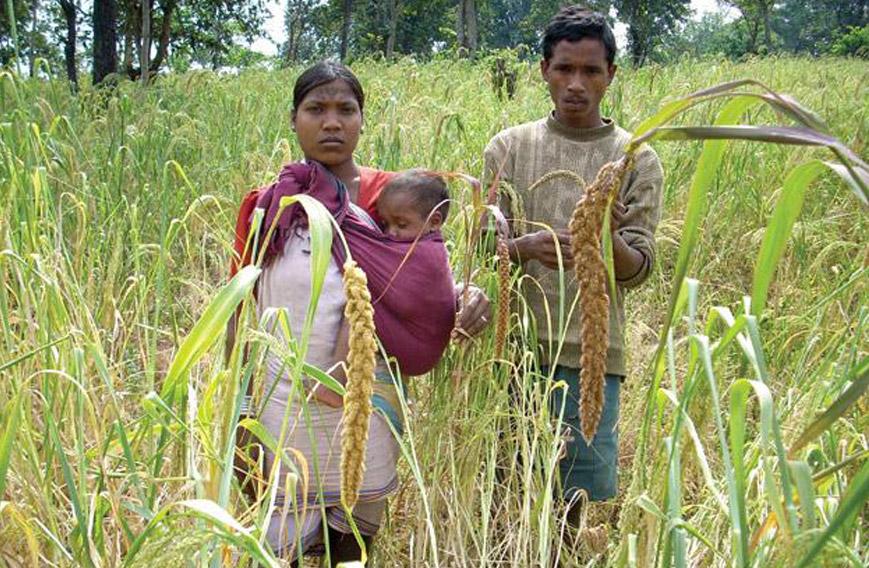Sustainable Agriculture and Tribal Communities in India
India has made strides in promoting sustainable agriculture over the past decade. The focus on organic farming has intensified, with terms like zero-budget farming and chemical-free practices increasingly featured in government policies. This shift has resulted in remarkable growth in the organic farming sector, with substantial increases in area, production, and exports.
Growth of Organic Farming
- India’s organic farming area expanded from 4.72 million hectares in 2015 to 10.17 million hectares by 2023. This represents 2.6 per cent of the country’s total agricultural land.
- Organic production reached 2.9 million metric tonnes during the same period.
- Key states leading this transformation include Madhya Pradesh, Maharashtra, Gujarat, and Rajasthan, which together contribute to 76 per cent of the total organic farming area.
Connection with Tribal Communities
- A strong correlation exists between organic farming and tribal populations in India.
- Madhya Pradesh, which leads in organic farming, also has the highest tribal population. These communities have historically practiced sustainable farming methods, rooted in biodiversity and conservation.
- Currently, 8.6 per cent of India’s population is tribal, with many engaged in agriculture. Their traditional practices have contributed to the success of organic farming in the country.
Certification Challenges
Despite the growth of organic farming, tribal farmers face barriers in obtaining certification. Many traditional farming methods do not comply with the rigid standards of the Participatory Guarantee System (PGS). A number of organic farmers in tribal regions struggle with certification, which can lead to a shift towards cash crops, jeopardising traditional crops and knowledge.
Policy Recommendations
To support organic farming in tribal regions, policies must recognise and respect the diversity of agricultural systems. Interventions should build on existing traditions rather than impose standardised frameworks. Cooperatives can play important role in helping tribal farmers access markets and secure fair prices.
Empowering Tribal Communities
- India can benefit from initiatives like “Brand Tribes” to market organic products from tribal farmers.
- Digital platforms and e-commerce can connect these producers with consumers who value sustainable practices.
- Any policy must be community-led, culturally sensitive, and respect the principle of Free, Prior and Informed Consent.
- Active consultation with tribal communities is essential to ensure that policies align with their traditional knowledge and practices.
Month: Current Affairs - February, 2025
Category: Agriculture Current Affairs








